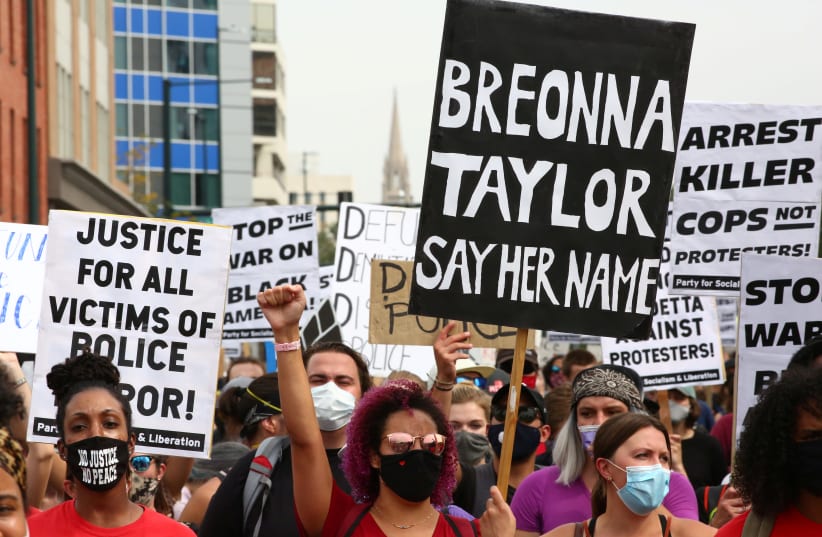Kentucky's attorney general reversed course and said he would release on Wednesday a recording of grand jury proceedings into the police shooting death of Breonna Taylor that resulted in none of the officers involved being charged with homicide.
Attorney General Daniel Cameron initially rejected calls to release the grand jury proceedings, saying those are meant to be kept secret, but now he will follow a judge's order and release a recording of the two-and-a-half days of proceedings.
Public pressure to release the evidence has been growing since last Wednesday, when a grand jury cleared the two officers who shot Taylor, a 26-year-old Black woman, but indicted a third officer with wanton endangerment for stray bullets that hit a neighboring apartment.
The outcome raised questions over how Cameron, a Black Republican, guided the grand jurors in their decision-making, a point that was amplified when a lawyer for one of the grand jurors said on Tuesday that Cameron may not have presented all the evidence.
That anonymous grand juror, the Kentucky governor, the Louisville mayor and the Taylor family all have asked Cameron to make the grand jury evidence public.
The tipping point came after the judge who is presiding over the case of the one indicted officer ordered a recording to be entered into the court file by Wednesday.
"We will comply with the judge's order to release the recording on Wednesday," Cameron said in a statement late on Monday.
The shooting took place while police were executing a "no-knock" search warrant in a drug investigation involving Taylor's ex-boyfriend. When the officers burst into her home in the early morning hours of March 13, Taylor's new boyfriend fired one shot at what he said he believed was a criminal intrusion, wounding one officer, and three officers responded with 32 rounds, six of which hit Taylor.
Cameron called the police shooting justified as an act of self-defense. In a crucial piece of disputed evidence, he also said one witness heard police announce themselves before breaking in.
The Taylor family attorneys and others have criticized Cameron's handling of the case, questioning what evidence he might have offered to the grand jury and asking if he meant to protect to the police.
Cameron said he presented "all of the evidence," but the unidentified grand juror has apparently challenged his public statements, filing a court motion on Monday asking to make the proceedings public.
"The full story and absolute truth of how this matter was handled from beginning to end is now an issue of great public interest," the motion said.
The grand juror's attorney, Kevin Glogower, told a news conference some evidence may have been held back.
"If you look at the two different statements from the Attorney General's Office ... they're indicating that they may not have actually presented what I would say is all the evidence," Glogower said.
In the grand jury system, prosecutors present findings in secret to the panel, which decides if the evidence is sufficient to charge a suspect. Since there are no defense lawyers present, prosecutors have wide leeway in guiding the grand jury.
